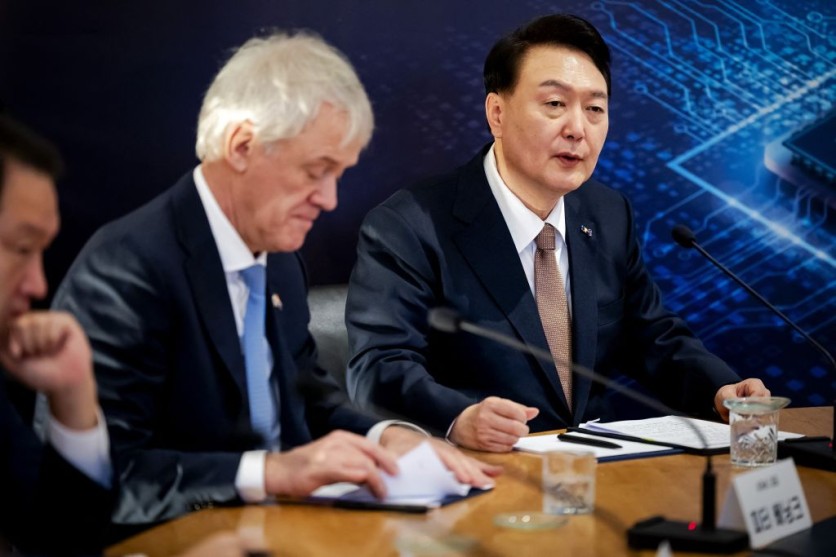South Korea is set to inject nearly $7 billion into artificial intelligence (AI) initiatives by 2027, a move aimed at bolstering its position in the competitive semiconductor market, President Yoon Suk Yeol announced on Tuesday.
The country, renowned for housing industry giants such as Samsung and SK Hynix, seeks to capitalize on its dominance in memory chip manufacturing to emerge as a frontrunner in AI chip development, according to a report by AFP.

South Korea Bets Big on AI
President Yoon emphasized AI's pivotal role in shaping the future of the semiconductor industry, citing its indispensable contribution to technological advancements.
Against this backdrop, South Korea plans to channel approximately 9.4 trillion won ($6.94 billion) into AI and AI semiconductor ventures by 2027. A separate fund of 1.4 trillion won ($1 billion) will also be established to support the growth of innovative AI semiconductor enterprises.
Key stakeholders from leading tech firms, including Samsung, SK Hynix, Naver, and AI chip startup SAPEON, convened at the high-profile meeting to deliberate on President Yoon's direction.
Semiconductors underpin South Korea's export-oriented economy. The surge in demand for advanced chips, particularly those powering AI systems like ChatGPT, has spurred heightened investment in this sector globally.
Given geopolitical considerations and the intensifying US-China rivalry, South Korea and Japan are positioning themselves as contenders in the semiconductor arena.
The objective is to bolster domestic chip production through substantial investments and incentives, thereby reducing reliance on foreign suppliers.
The Competitive Semiconductor Market
Silicon Valley giant Nvidia is currently dominating the AI chip market, with SK Hynix playing a crucial role by supplying high-bandwidth memory chips. South Korea's ambition extends beyond memory chips, with President Yoon expressing aspirations to lead the future AI chip market.
President Yoon's announcement coincided with the United States' unveiling of subsidies worth up to $6.6 billion for Taiwan Semiconductor Manufacturing Company (TSMC), aimed at incentivizing advanced chip production within its borders.
Similarly, Japan recently announced subsidies of up to $3.9 billion for a chip venture, signaling its commitment to revitalizing the semiconductor sector.
Meanwhile, China has been steadfast in its efforts to nurture a robust domestic chip industry, motivated by concerns over reliance on Western technology and US trade restrictions.
Semiconductors remain South Korea's flagship export, with March witnessing semiconductor exports reaching $11.7 billion, the highest level in nearly two years and constituting a significant portion of the country's total exports, as noted by AFP.
Related Article : Self-Destructing Soft Robots by Korean Researchers Can Effectively Disappear After Completing Military, Intelligence Tasks

ⓒ 2025 TECHTIMES.com All rights reserved. Do not reproduce without permission.




